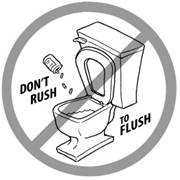Throughout the country municipalities and states have struggled over what to do with old or unneeded pharmaceuticals. Too often, they are simply flushed down the toilet, but sewage treatment plants aren’t necessarily equipped to remove them. As a result, the drugs end up in the water where they are still active. Additionally, unused medications often end up on the street, being sold illicitly.
The Vermont Legislature is considering a first step in developing a statewide policy for disposal of pharmaceuticals (H. 11). The Lake Champlain Committee has offered testimony in support of the bill. We also helped bring in a representative from the Burlington Police Department and a researcher from the U.S. Geological Survey to provide insights into the importance and difficulties of pharmaceutical disposal. Some pharmaceuticals are considered hazardous waste; others are illegal narcotics. Depending on the category, disposal requirements vary.
In addition, LCC has begun work with the Burlington Partnership for a Healthy Community in an effort to increase disposal options for unwanted medications. We will continue to track the legislation in Vermont and to identify the best means of getting rid of old pharmaceuticals. In the meantime, the Lake Champlain Committee recommends disposing of unused medications by throwing them in the trash. Ideally, the medications should be disposed of in their original container after being made unusable either by adding a little water to solids or adding coffee grounds or kitty litter to liquids.
